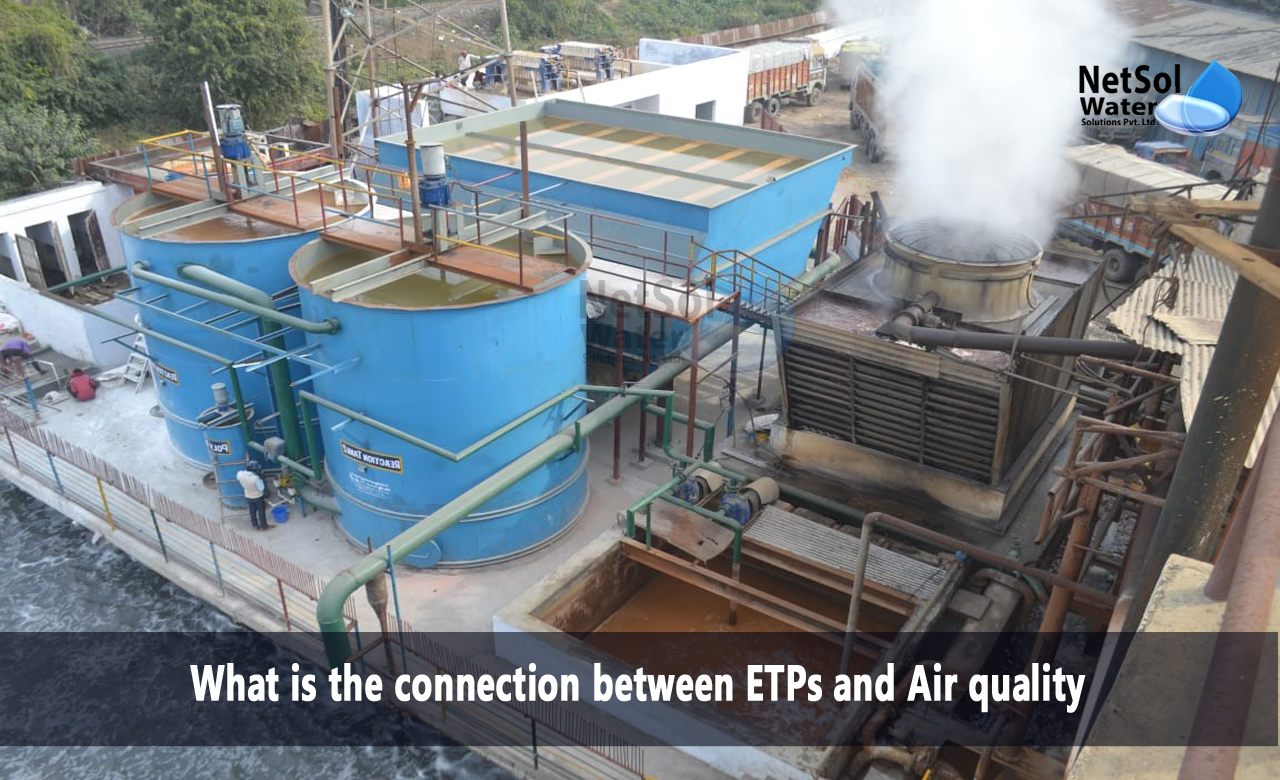What is the Connection Between ETPs and Air Quality?
Effluent Treatment Plants (ETPs) assume a urgent part in wastewater the executives and ecological security. While ETPs are principally intended to treat and refine wastewater, their activity can have an aberrant association with air quality. The association between ETPs and air quality is complex and can influence different parts of natural administration. In this blog, we will investigate the connection between ETPs and air quality.
1. Odor Control:
ETPs frequently handle wastewater with different natural and inorganic mixtures, some of which can deliver foul odors. These odors can be delivered high up while possibly not really controlled. The arrival of horrendous odors might not just affect the neighborhood climate at any point yet in addition lead to grievances from adjacent occupants. Accordingly, ETPs carry out odor control measures, for example, organic treatment processes, compound scrubbers, initiated carbon channels, and biotrickling channels, to limit smell discharges and keep up with OK air quality.
2. Unpredictable Natural Mixtures (VOCs) Discharges:
Certain treatment processes inside ETPs, especially in ventures like synthetics, petrochemicals, and drugs, may include the utilization of natural solvents and synthetics. These substances can deliver unpredictable natural mixtures (VOCs) into the climate during dealing with, stockpiling, or unintentional spills. VOCs are air poisons that can add to the arrangement of brown haze, ground-level ozone, and unfriendly wellbeing impacts. Appropriate administration of these synthetic compounds, including the utilization of VOC reduction innovations, is fundamental to limit their delivery up high.
3. Ooze Taking care of and Ozone harming substance Discharges:
In ETPs, the administration of ooze created during the treatment cycle can prompt the outflow of ozone depleting substances (GHGs), like methane (CH4) and nitrous oxide (N2O). Methane, specifically, is an intense GHG with a huge effect on environmental change. Appropriate slime the board rehearses, like anaerobic assimilation and biogas catch, are fundamental for diminishing these discharges and their effect on air quality.
4. Energy Utilization and Air Toxins:
The energy utilization related with ETPs can in a roundabout way influence air quality. High energy utilization might prompt expanded discharges of air toxins from power age sources, especially in the event that the energy comes from petroleum derivatives. Energy-productive ETPs, including those that consolidate sustainable power sources or energy recuperation frameworks, can assist with decreasing their carbon impression and add to more readily air quality.
5. Administrative Consistence:
Natural guidelines frequently incorporate air quality norms that ETPs should meet. Consistence with these guidelines is vital to keeping an office's administrative standing and staying away from punishments. Normal checking of outflows and the utilization of suitable control advances are fundamental for meeting air quality guidelines.
6. Local area and Specialist Wellbeing:
Air quality straightforwardly influences the wellbeing and prosperity of neighboring networks and ETP laborers. Unfortunate air quality can prompt respiratory issues, cardiovascular issues, and other wellbeing concerns. Hence, ETPs should guarantee that their activities don't adversely influence the soundness of the encompassing populace and their own representatives.
7. Ecological Effect Evaluations:
Prior to laying out or growing an ETP, an ecological effect evaluation (EIA) is frequentlyrequired. The EIA surveys possible effects on air quality, among other natural elements. Relief measures and advances might be important to guarantee that the activity of the ETP doesn't prompt the weakening of neighborhood air quality.
Conclusion
Taking everything into account, the association between Effluent Treatment Plants (ETPs) and air quality is critical and multi-layered. While ETPs are basically intended to treat wastewater and safeguard water bodies from contamination, their activity can by implication influence air quality. The arrival of scents, unstable natural mixtures (VOCs), ozone harming substances, and the energy utilization related with ETPs all can possibly impact air quality. In this manner, ETPs should carry out different advancements, control measures, and checking frameworks to limit their effect on air quality and guarantee the prosperity of the climate and encompassing networks. Appropriate administration of these viewpoints adds to the general manageability and adequacy of ETPs in current natural administration.
Netsol Water is Greater Noida-based leading water & wastewater treatment plant manufacturer. We are industry's most demanding company based on client review and work quality. We are known as best commercial RO plant manufacturers, industrial RO plant manufacturer, sewage treatment plant manufacturer, Water Softener Plant Manufacturers and effluent treatment plant manufacturers. Apart from this 24x7 customer support is our USP. Call on +91-9650608473, or write us at enquiry@netsolwater.com for any support, inquiry or product-purchase related query.



